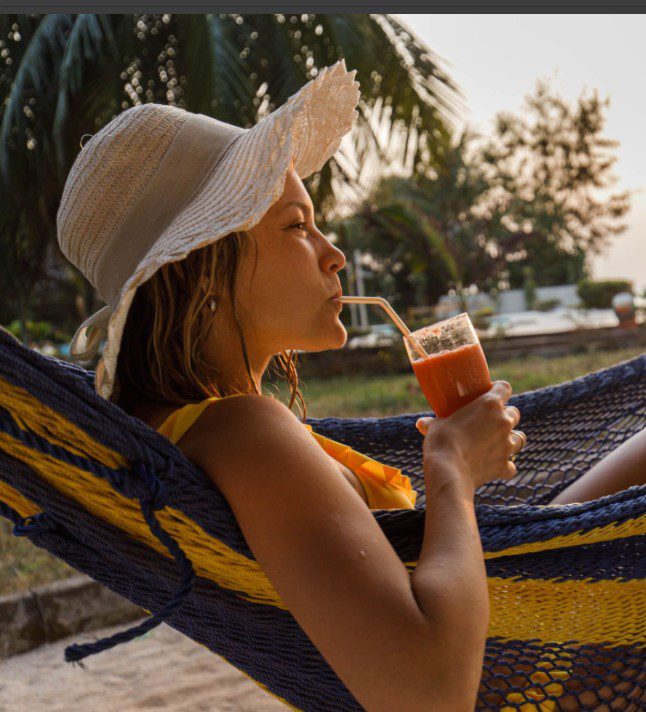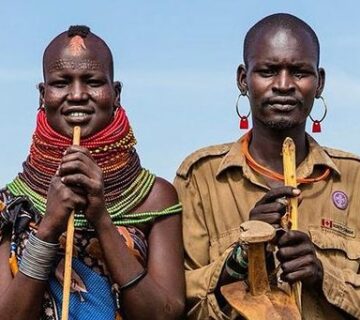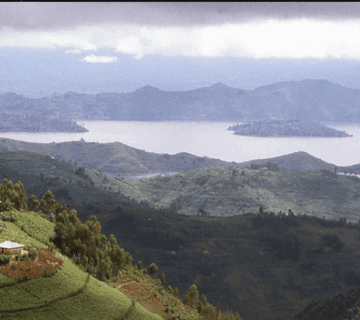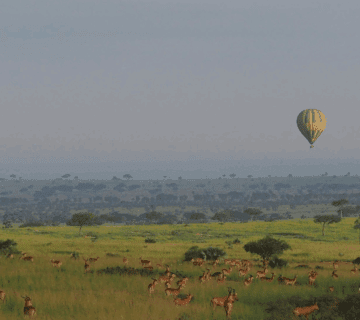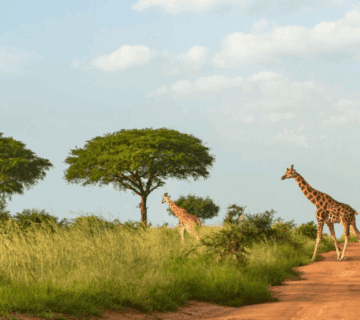What Drinks Is Tanzania Known For? A Taste of Tanzanian Culture in Every Sip
Tanzania is a land that awakens the soul where the wild beats of nature dance across the Serengeti plains and the turquoise waters of Zanzibar whisper ancient stories. But beyond its breathtaking landscapes and thrilling safaris, Tanzania is also a place where culture flows into your cup. The drinks of Tanzania are more than just beverages they are stories, traditions, and expressions of a vibrant people. Whether you’re sipping something sweet under the coastal sun or sharing a local brew around a village fire, every drink in Tanzania offers a glimpse into the heart of the country.
The Cultural Importance of Drinks in Tanzania
In Tanzanian culture, drinks are more than refreshment. They are part of social gatherings, rituals, ceremonies, and daily life. From rural villages to urban cafés, what people drink and how they drink it reflects a rich fusion of indigenous customs, Swahili heritage, Arab and European influences, and a deep connection to nature.
Whether you’re a curious traveler, a cultural explorer, or a food and drink enthusiast, discovering Tanzania’s unique beverages is an adventure of its own. Here’s a journey through the most iconic drinks that define Tanzania’s thirst-quenching identity.
1. Chai – The Nation’s Beloved Tea
If there’s one drink that defines daily life in Tanzania, it’s chai. Tanzanian tea is not just a beverage but a morning ritual, a welcoming gesture, and often a conversation starter. Locally grown in the lush highlands of regions like Iringa and Mbeya, Tanzanian tea is rich in flavor and history.
Most often prepared with milk and infused with spices like ginger, cardamom, or cinnamon, chai in Tanzania has both Indian and Swahili roots. Served hot, it’s a comforting drink that warms the soul, whether enjoyed at a roadside stall, in a local home, or at a coastal café.
2. Kahawa – Spiced Swahili Coffee
On the bustling streets of coastal towns like Dar es Salaam and Stone Town in Zanzibar, the aroma of freshly brewed kahawa wafts through the air. Kahawa, a traditional Swahili coffee, is often served black and brewed with a blend of spices including cardamom and cloves. It’s poured from long-necked brass kettles into small cups, especially during social gatherings or special occasions.
This style of coffee is deeply rooted in Arab-Swahili culture, and sipping kahawa is a cherished ritual, especially in Zanzibar. It’s a symbol of hospitality, wisdom, and shared stories.
3. Tanzania’s Local Brews – A Taste of Tradition
Tanzania has a rich tradition of brewing its own alcoholic beverages using locally available ingredients. These brews vary by region, tribe, and occasion, but they all carry a deep cultural significance.
a. Mbege (Banana Beer)
Originating from the Chagga people of Mount Kilimanjaro, Mbege is a traditional banana beer made by fermenting bananas and mixing the brew with millet flour. Slightly sour, mildly alcoholic, and cloudy in appearance, Mbege is often served at community events, weddings, and traditional ceremonies. Its preparation is a communal activity that often involves storytelling, singing, and laughter.
b. Togwa
Togwa is a mildly fermented, porridge-like drink made from maize, millet, or sorghum. It’s thick, filling, and slightly sour more of a traditional energy drink than a recreational one. Common in rural households, Togwa is served to guests, farmers during fieldwork, or as a daily beverage in many Tanzanian homes.
c. Pombe
Pombe is the general Swahili term for local alcoholic drinks, and it can refer to a wide range of brews made from cassava, maize, millet, or sorghum. Homemade and naturally fermented, these brews are often consumed in communal settings using large calabash bowls or shared cups. It’s about bonding and celebrating, not just the drink itself.
4. Konyagi – The Spirit of Tanzania
When it comes to spirits, Konyagi holds a special place in Tanzanian hearts. Often referred to as the “national drink,” Konyagi is a clear spirit that tastes somewhere between gin and vodka, although it’s made from sugarcane and includes secret botanicals.
Known for its smoothness and affordability, Konyagi is commonly mixed with soda or fruit juice and served at parties, bars, and family gatherings. It’s a popular drink among both locals and tourists and is often seen as a symbol of modern Tanzanian nightlife.
5. Tanzanian Beers – Local Brews with Global Appeal
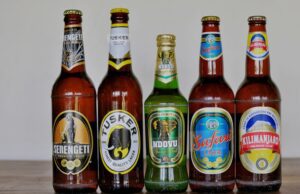
Beer is hugely popular in Tanzania, and the country is home to several successful breweries. The most iconic Tanzanian beers include:
a. Safari Lager
Launched in 1987, Safari Lager is a household name. It’s a light, easy-to-drink beer with a clean finish perfect for a hot day after a game drive or a beach walk.
b. Kilimanjaro Premium Lager
Named after Africa’s highest peak, Kilimanjaro Beer is a favorite among locals and tourists alike. It’s a smooth, crisp lager that captures the adventurous spirit of Tanzania.
c. Serengeti Beer
Inspired by the legendary Serengeti plains, this brew is rich and slightly stronger than other local beers. It has earned a reputation for quality and flavor.
These beers are often enjoyed with grilled meat, known locally as nyama choma, or during celebrations and sports events.
6. Tropical Juices and Refreshing Non-Alcoholic Drinks
Thanks to Tanzania’s fertile soil and tropical climate, fresh fruit is abundant, and so are the juices.
a. Sugarcane Juice (Juisi ya Miwa)
Sold on the streets and in local markets, sugarcane juice is freshly squeezed and sometimes served with a touch of ginger or lime. It’s refreshing, energizing, and uniquely East African.
b. Tamarind Juice (Ukwaju)
Tamarind, known for its tangy-sweet flavor, is used to make a popular juice that’s often spiced or sweetened. It’s loved especially along the coast and in Zanzibar.
c. Passion Fruit, Mango, and Pineapple Juices
These fresh tropical juices are staples in homes, restaurants, and beach bars. They’re not only delicious but also packed with vitamins, making them a favorite among health-conscious travelers.
7. Coconut Water and Dafu – Zanzibar’s Coastal Refreshment
Along the Swahili coast, especially in Zanzibar, nothing beats the taste of dafu the Swahili word for young, green coconut. Vendors chop open the coconuts with a machete and serve them chilled or at room temperature. The mildly sweet water inside is nature’s best hydration, especially under the coastal sun.
After drinking the water, many locals scrape out the soft jelly-like flesh inside the coconut for a light snack. Dafu is often enjoyed during beach outings, after work, or simply as a healthy daily refreshment.
8. Herbal Drinks and Medicinal Tonics
In Tanzanian traditional medicine, plants and herbs play a central role, and several drinks are prepared not just for refreshment, but for health.
a. Dawa (Herbal Drink)
Not to be confused with the cocktail of the same name, dawa in its traditional form is a concoction of herbs like neem, ginger, lemon, honey, and sometimes garlic. It’s consumed for its immune-boosting, detoxifying, and therapeutic benefits.
b. Neem Tea (Muarobaini)
Neem, locally known as muarobaini (meaning “the tree of forty cures”), is brewed into a bitter tea believed to treat many ailments. Though its taste might be strong, many Tanzanians swear by its healing properties.

